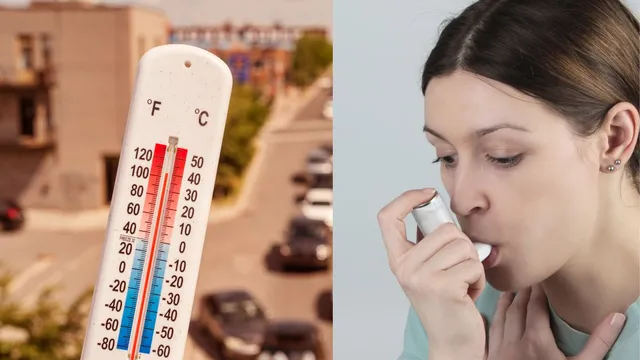- By Iram Hussain
- Tue, 06 May 2025 03:34 PM (IST)
- Source:JND
Heatwave And Asthma: As the mercury continues to rise globally, heatwaves have become more frequent, intense and prolonged. While everyone feels the discomfort of soaring temperatures, for people living with asthma, the impact can be far more serious, sometimes even life-threatening. Asthma is a chronic condition that causes inflammation and narrowing of the airways, leading to difficulty in breathing. Common triggers include allergens, pollution, stress and infections. But climate change has added a new player to this list i.e. extreme heat.
In a conversation with Jagran English, Dr Ankit Kumar Sinha, Senior Consultant & HOD – Pulmonology at Max Super Speciality Hospital, Vaishali explained how heatwaves trigger asthma and what one can do to stay safe.
How Heatwaves Worsen Asthma Symptoms?
When temperatures climb to extreme levels, the air becomes heavier with pollutants like ozone and particulate matter. These substances irritate the airways, making it harder for asthma patients to breathe. Hot air can also cause the lungs to work harder, further straining the respiratory system. Additionally, high heat often coincides with increased pollen counts and dust levels, particularly in urban areas. For those with allergic asthma, this combination can lead to more frequent and severe asthma attacks.
Dehydration And Medication Challenges
During a heatwave, the risk of dehydration increases which can thicken mucus in the lungs, complicating breathing. Asthma medications, especially inhalers may also be less effective or degrade if not stored properly in high temperatures.
Vulnerable Groups At Greater Risk
Children, the elderly and people with other chronic health conditions are particularly vulnerable. For them, even a slight increase in temperature can trigger a severe response. Access to cool indoor spaces and proper medical care becomes crucial during these times.
Tips For Managing Asthma During Heatwaves
1. Stay Indoors During Peak Heat- Try to remain in air-conditioned environments, especially during the hottest parts of the day (12 PM to 4 PM).
2. Stay Hydrated- Drink plenty of fluids to keep your airways moist and reduce mucus buildup.
3. Monitor Air Quality- Check daily air quality indexes and avoid outdoor activity on days with high pollution or pollen levels.
4. Keep Inhalers Cool- Store medications in a cool dry place. Never leave inhalers in a hot car or exposed to direct sunlight.
5. Have An Action Plan- Keep a clear asthma action plan ready in consultation with your doctor, especially for emergencies.
ALSO READ: World Asthma Day 2025: Doctor Explains 6 Types Of Asthma You Should Know About
ALSO READ: Can Asthma Come Back After Years? Here's What Doctor Wants You To Know

